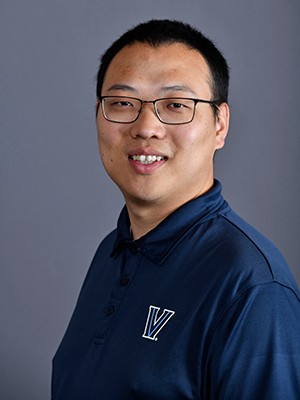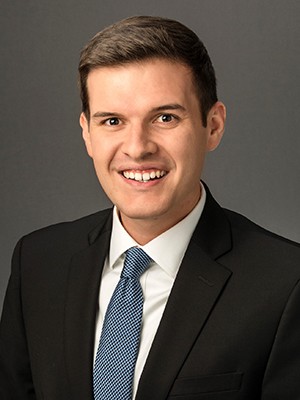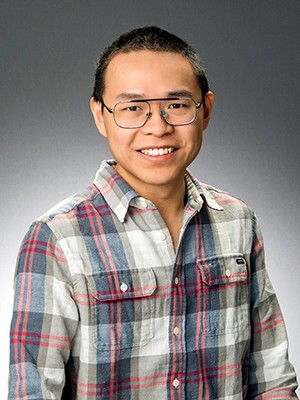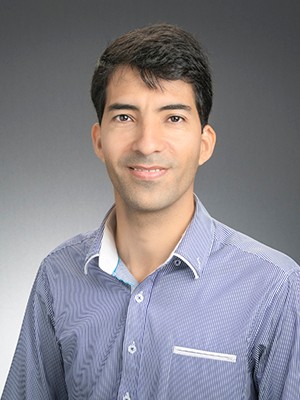Four Professors Receive Assistant Tenure Track Faculty Career Development Award
In spring 2022, the College of Engineering initiated the Assistant Tenure Track Faculty Career Development Award. Presented to four awardees for the 2022-23 academic year, the award is intended to support tenure-track faculty members to facilitate relationships with mentor/collaborators at other institutions who can help to accelerate faculty research development.
Meet the first cohort of awardees:

Weijian Diao, PhD
Assistant Professor of Chemical and Biological Engineering
Dr. Diao’s research focuses on heterogeneous catalysis, especially rational catalyst synthesis and application for renewable chemical production. In his work, he synthesizes nanostructured metal-metal and metal-metal oxide catalysts with unique composition and morphology for hydrocarbon conversion, CO2 utilization and renewable energy.
“With the Assistant Tenure Track Faculty Career Development Award, I am able to build a mentor-mentee relation with a senior faculty outside Villanova who is a well-known expert in catalysis field,” Dr. Diao says. “We have met several times this year in person and online to discuss potential collaboration and joint proposals.”
“Another benefit of the program is that it supports me to attend national meetings in catalysis research area such as Gordon Research Conference,” he adds. “I was able to meet with and build connections with faculty from other institutions and experts from industrial companies. I also discussed with [National Science Foundation] program manager during the meeting about catalysis research at Villanova and future potential proposals to NSF.”

Jonathan Hubler, PhD
Assistant Professor of Civil and Environmental Engineering
Dr. Hubler’s research focuses on geotechnical aspects of natural hazards. Specifically, his research group has been evaluating soil behavior during earthquake events and the impacts of extreme events on infrastructure performance.
“The Assistant Tenure Track Faculty Career Development Award enabled me to travel to the University of Washington during spring 2022 to develop new research collaborations with researchers at the NSF Natural Hazards Engineering Research Infrastructure (NHERI) RAPID facility,” Dr. Hubler says. “I worked with a collaborator to devise a research plan to collect data using seismometers available at the RAPID facility and completed the measurements during the month-long visit. The preliminary data has shown promising results and has led to the submission of several research proposals and the opportunity to co-advise an NSF REU (Research Experience for Undergraduates) student at the University of Washington/NSF RAPID center this summer.”
“The greatest benefit was the ability to travel for one month to build connections with collaborators in geotechnical engineering and natural hazards research, learn about new research equipment, and deploy the equipment to collect data for proposals and manuscripts,” he adds.

Xun Jiao, PhD
Assistant Professor of Electrical and Computer Engineering
Dr. Jiao’s research is to develop robust and efficient computing systems for intelligent algorithms such as artificial intelligence (AI) and machine learning (ML). This has a broad range of application fields such as smart health care, green environment and autonomous systems.
Dr. Jiao calls the fellowship a “great help! This helped me connect with several senior faculty and researchers in my field. There are already multiple papers being published and conferences sessions being organized as a result of this grant. It will also help me get further in executing several just-funded NSF projects.”
Among the biggest benefits of the program, he says, is it “provides a platform to make connections with colleagues and researchers in other institutions.”

Mojtaba Vaezi, PhD
Assistant Professor of Electrical and Computer Engineering
Dr. Vaezi’s research interests include the broad areas of wireless communications and information theory. In his work, Dr. Vaezi is applying emerging tools from deep learning to increase connectivity, speed and autonomy of fifth generation (5G) and beyond wireless networks. Specifically, he is working on multiple access for massive connectivity and interference management for cellular networks and drones.
“The award has truly enlarged my professional network and provided a chance for long-lasting collaboration with leading figures/institutions of the field,” he says. “I have visited MIT, Princeton and Virginia Tech during the past months and have started collaboration with my hosts in various senses, including co-authoring papers, writing proposals and co-supervising students.”
“Visiting leading researchers of deep learning for wireless communications, presenting our research and discussing ideas has helped me better shape and define my research objectives and build a much more competitive research program at Villanova,” he adds.
